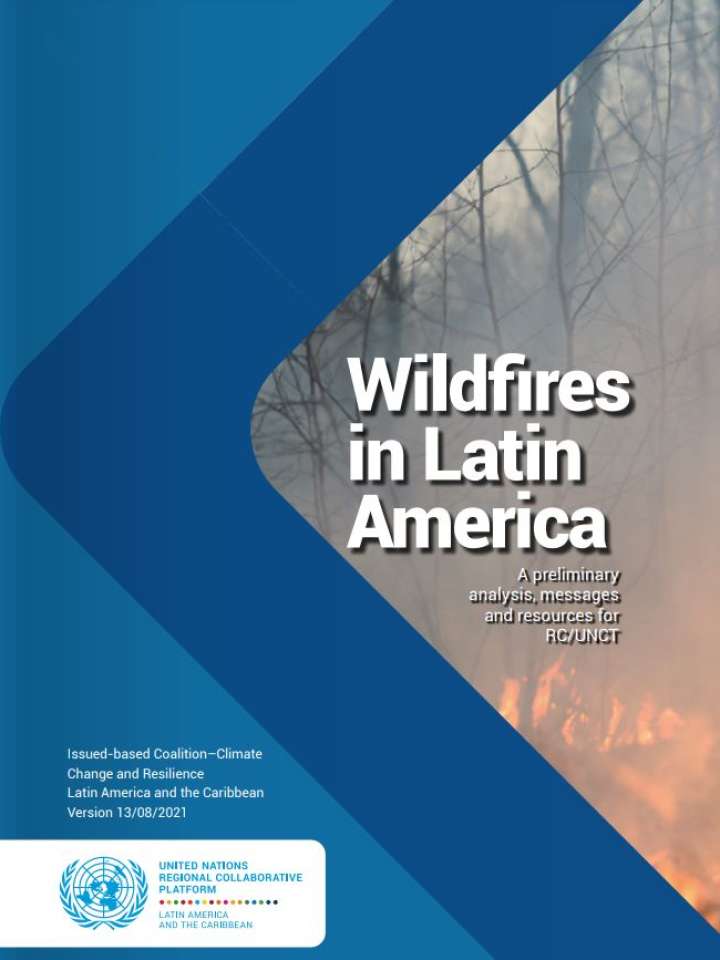Wildfires in Latin America: A preliminary analysis, messages and resources
In 2020, similarly to other regions globally, Latin America has experienced a wildfire season marked by major wildfires in particularly important natural areas such as the Amazon, the Pantanal and El Chaco. Uncontrolled forest and rural fires have significant impacts on the societies, the economies, and the environment of Latin America and the Caribbean. Inadequate resources and lack of financial and technical capacities limit the possible measures to reduce fire impacts, fire suppression and post- event humanitarian aid to affected populations. The adoption of standardized internationally agreed methodologies to record and analyse historical wildfires and their impacts on environment and society could be instrumental to develop robust statistics and, in turn, to inform policy and decision- making in order to prevent wildfires and reduce their impact
The Issue-Based Coalition on Climate Change and Resilience seeks to enable UN agencies to work together to support a coherent and aligned implementation of the global agendas, in particular the 2030 Agenda, the UNFCCC including the Paris Agreement, and the Sendai Framework for Disaster Risk Reduction 2015-2030. Coalition aims to strengthen and streamline inter-agency coordination and UN system accountability on sub-regional and DRR work at the regional and sub regional levels. The IBC is co-led by UNDRR and UNEP and counts on the participation of 17 additional agencies. In the framework of this Coalition, and in response to the increasing intensity of wildfires in the region, a taskforce has been formed to analyse and articulate a coherent approach to the issue of wildfires, providing tools and resources to UN agencies and “UN Country Teams (UNCTs) of the region. Given its experience over the years in fire management, FAO was asked to lead the taskforce and coordinate the finalization of this document.
